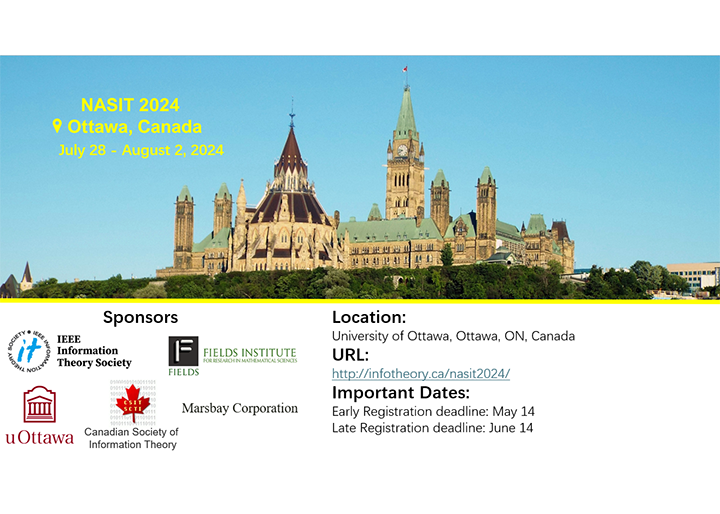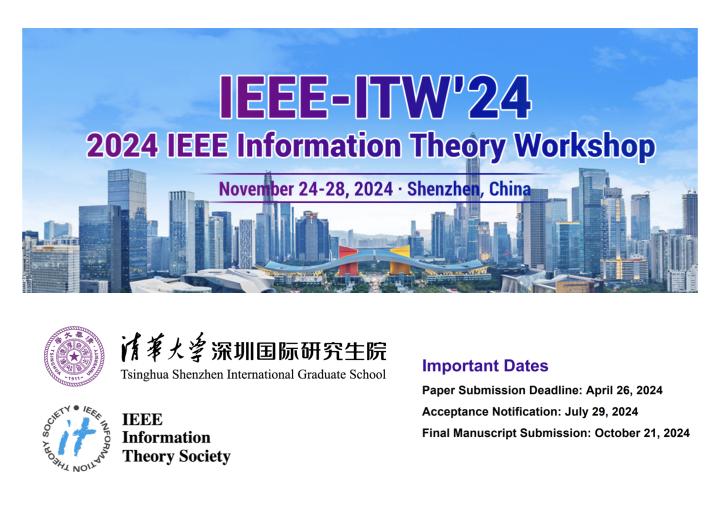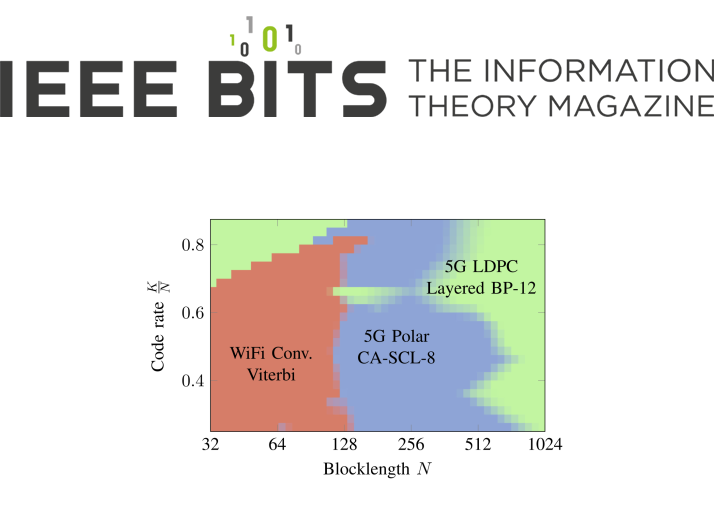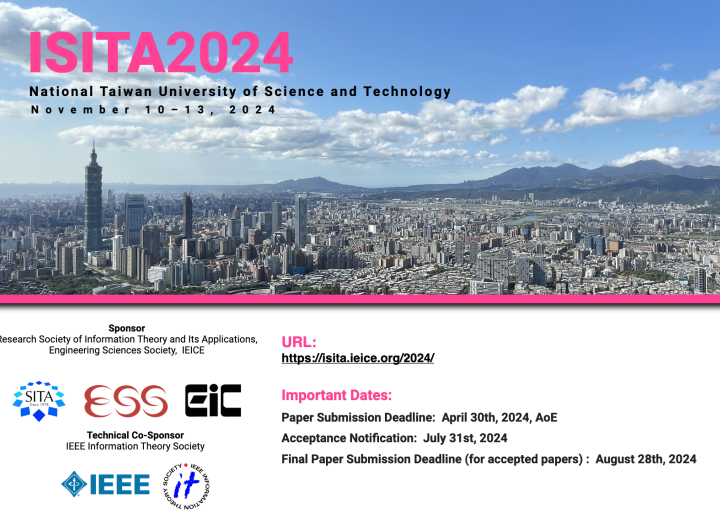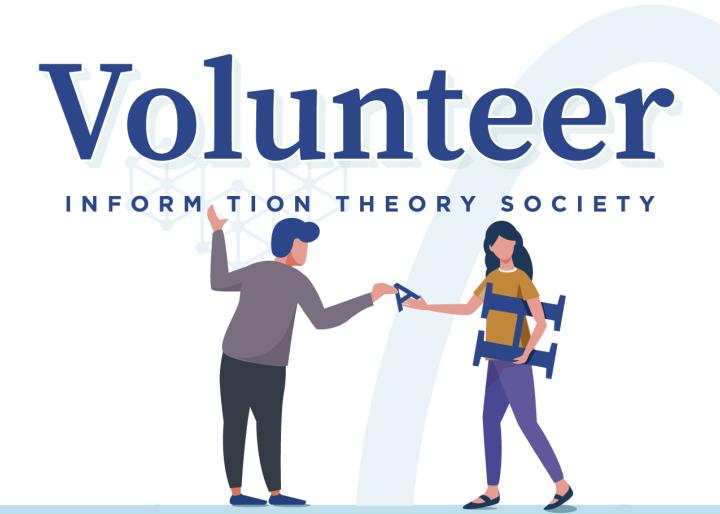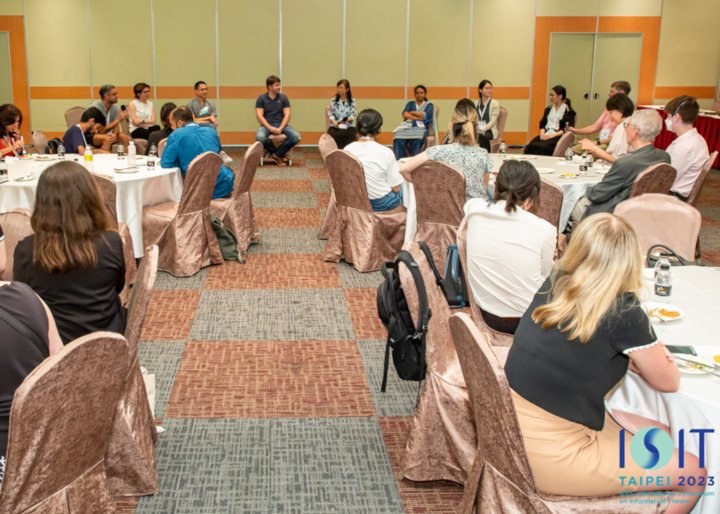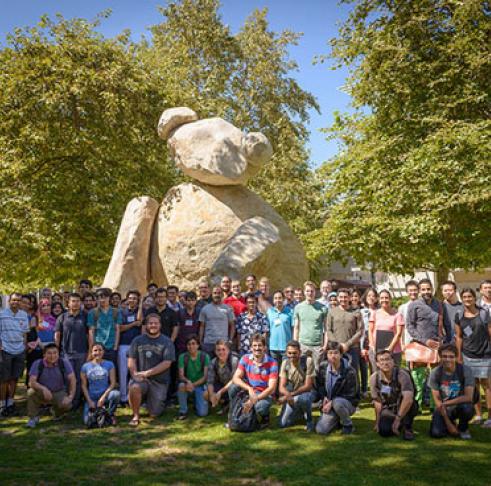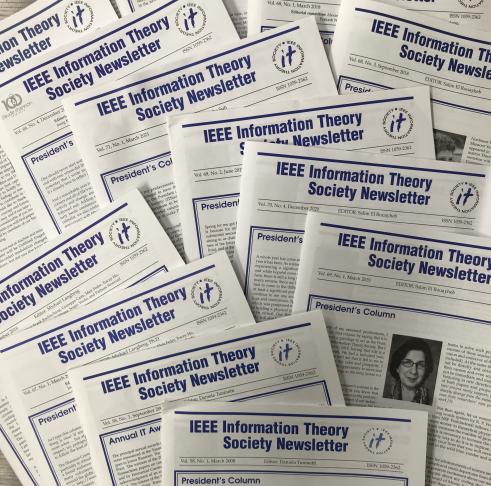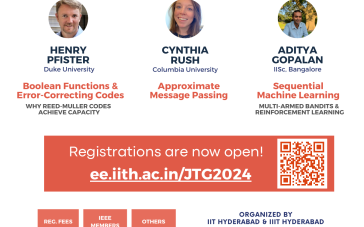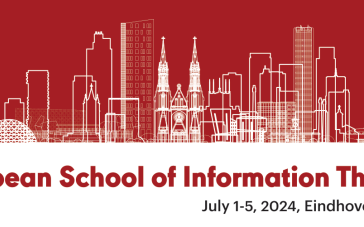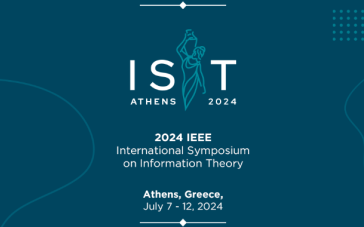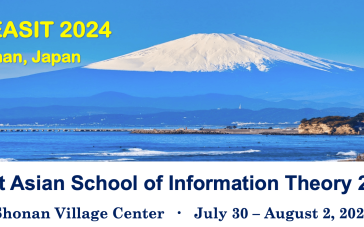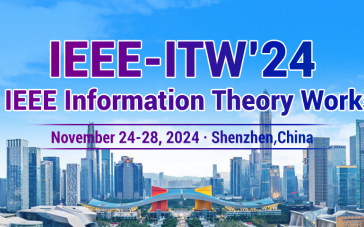Information Theory Society
The IEEE Information Theory Society is the premier professional society dedicated to the advancement of the mathematical underpinnings of information technology for the benefit of humanity. Information theory encompasses the processing, transmission, storage, and use of information, and the foundations of the communication process.
Aspects of Our Society
Outreach
A gathering of videos, books and more that show how information theory impacts our lives.Meet IT Society Students
The Student and Outreach Subcommittee plans student and outreach activities at symposia and workshops.Read Our Newsletter
The IEEE Information Theory Society Newsletter connects our members and is published four times a year. Beginning with the March 2022 issue, the Newsletter is online only.Upcoming Events
Indian Institute of Technology Hyderabad
2024 JTG/IEEE ITSoc Summer School
Eindhoven, the Netherlands
IEEE European School of Information Theory (ESIT) 2024
IEEE International Symposium on Information Theory (ISIT) 2024
Ottawa, ON, Canada
IEEE North American School of Information Theory (NASIT) 2024
IEEE East Asian School of Information Theory (EASIT) 2024
Deadline Extension: IEEE-ITW'24
News
ISIT 2024: Call for Recent Results
Contributions for Society Newsletter
Please submit any contributions for the Society Newsletter by March 25, 2024.
Reminder of upcoming deadlines for paper/poster submissions to workshops@ISIT’24
The 03 March deadline for paper submissions to (most) workshops@ISIT is quickly approaching!
Conferences
2024 Cambridge Information Theory Colloquium
2024 Cambridge Information Theory Colloquium
10 May 2024, Cambridge, UK
The Twelfth International Conference on Learning Representations (ICLR)
The Twelfth International Conference on Learning Representations (ICLR) will be held in Vienna…
Jobs Board
Postdoc positions on Information Theory/Coding and DNA Storage
Postdoctoral researcher positions in coding and information theory are available at Bilkent…
Postdoctoral Research Fellow in Error Correction Coding
A 2-year full time Postdoctoral Research Fellow position in Error Correction Coding is available at…
Postdoctoral positions at the University of Bristol
Up to three Post-Doctoral positions are available in information theory, decentralised decision-…
Call to Action
Recent Journal Issues
JSAIT is a multi-disciplinary journal of special issues.
The IEEE Transactions on Information Theory publishes papers concerned with the transmission, processing, and utilization of information.
Videos on Information Theory
Research In Information Theory
Shannon, Euler, and Mazes
One of Claude Shannon’s best remembered “toys” was his maze-solving machine, created by partitions on a rectangular grid. A mechanical mouse was started at one point in the maze with the task of finding cheese at another point. Relays under the board guided successive moves, each of which were taken in the first open counterclockwise direction from the previous move. In belated honor of Shannon’s centenary and of amnesia in the mouse at age 70, we compare this deterministic search strategy with ...
6G: The Personal Tactile Internet—And Open Questions for Information Theory
The initial vision of cellular communications was to deliver ubiquitous voice communications to anyone anywhere. In a simplified view, 1G delivered voice services for business customers, and only 2G for consumers. Next, this also initiated the appetite for cellular data, for which 3G was designed. However, Blackberry delivered business smartphones, and 4G made smartphones a consumer device. The promise of 5G is to start the Tactile Internet, to control real and virtual objects in real-time via c...
Function Load Balancing Over Networks
Using networks as a means of computing can reduce the communication flow over networks. We propose to distribute the computation load in stationary networks and formulate a flow-based delay minimization problem that jointly captures the costs of communications and computation. We exploit the distributed compression scheme of Slepian-Wolf that is applicable under any protocol information. We introduce the notion of entropic surjectivity as a measure of function’s sparsity and to understand the li...
Reed–Muller Codes: Theory and Algorithms
Reed-Muller (RM) codes are among the oldest, simplest and perhaps most ubiquitous family of codes. They are used in many areas of coding theory in both electrical engineering and computer science. Yet, many of their important properties are still under investigation. This paper covers some of the recent developments regarding the weight enumerator and the capacity-achieving properties of RM codes, as well as some of the algorithmic developments. In particular, the paper discusses the recent conn...
Deep Neural Network Approximation Theory
This paper develops fundamental limits of deep neural network learning by characterizing what is possible if no constraints are imposed on the learning algorithm and on the amount of training data. Concretely, we consider Kolmogorov-optimal approximation through deep neural networks with the guiding theme being a relation between the complexity of the function (class) to be approximated and the complexity of the approximating network in terms of connectivity and memory requirements for storing t...

